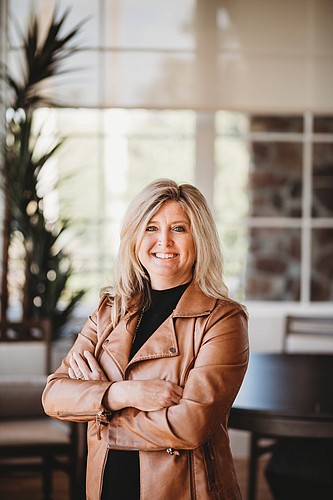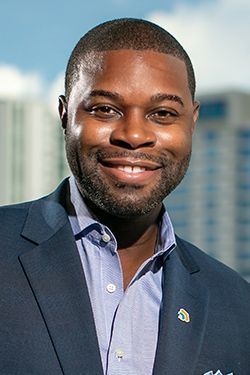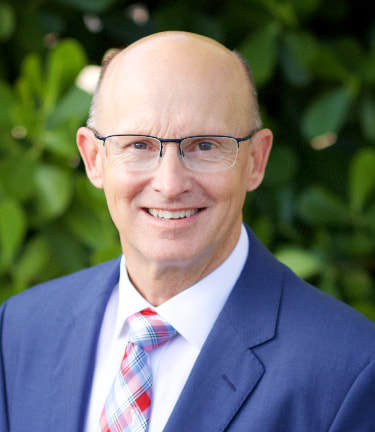- April 8, 2025
-
-
Loading

Loading

Southwest Florida and Tampa Bay area chamber aspirations for the 60-day 2022 state legislative session that begins Jan. 11 are consistent with previous years.
“The ‘buckets’ are not going to change: affordable housing, workforce development, childcare, water quality and obviously, transportation, transportation, transportation,” Tampa Bay Chamber Vice President for Advocacy Nicholas Glover says.
What has changed, however, is urgency. With state and local governments poised to spend billions in “one-time” federal COVID-19 stimulus funds, chambers see a “once-only” opportunity to address “bucket” priorities.
Greater Sarasota Chamber of Commerce President and CEO Heather Kasten says members met with lawmakers “and shared with them the importance of priorities in four categories — transportation, infrastructure, education for workforce development, affordable housing.”
Greater Naples Chamber President and CEO Michael Dalby says lawmakers must tackle “areas that have been on the radar for a long time — workforce housing, career and technical education.
“But for us, right now,” he continues, “we’re not focusing on specific bills. These are complicated issues. It’s not like pass this bill, all will be well. What we have is a ‘talent agenda’ and all (‘buckets’) are important because the one issue our businesses are dealing with is finding, sourcing and recruiting talent.”
Among 2022 “bucket” priorities:
Extend business COVID-19 Business liability protections
“We typically don’t talk about things pre-filed,” Glover says, noting bills can be introduced “as a strategy point” during pre-filing periods rather than for serious session deliberation.
But his chamber would endorse a bill “making sure businesses continue to have protections they had” under 2021’s Senate Bill 72, he says. “COVID-19 liability is still a priority for us.”
Senate Bill 72, sponsored by Sen. Jeff Brandes, R-St. Petersburg, granted liability protections to businesses and health care providers against COVID-19-related lawsuits. Those protections expire March 29.
At least two pre-filed bills — Senate Bill 7014, sponsored by the Senate Judiciary Committee, and Senate Bill 610, filed by Brandes — address liability for health care providers, but no measures extending protections for businesses had been filed by mid-December.
Workforce development
Gov. Ron DeSantis’$99.7 billion Fiscal Year 2023 budget request seeks $534 million for vocational education, including $100 million for a Workforce Development Capitalization Grant Program for school districts, colleges and technical schools.

The investment is lauded by chambers who want lawmakers to fully fund vocational programs and incentivize technical training, internships and apprenticeships.
Vocational programs provided through school districts “create the foundation to build on,” Dalby says but, “under the state’s funding formula, Collier County only receives 87%” of the money necessary to operate them at Lorenzo Walker Technical College and Immokalee Technical College.
“We’re trying to work through the Department of Education in the budget process to say, ‘Hey, let’s get all our technical training programs fully funded,’” he says.
Dalby adds: “There’s another issue that deals with where we get instructors. Those instructors can make a lot more money in their career fields than being an instructor at a technical college.”
His chamber is “working with legislators to create incentive funds, say for nursing instructors,” he says. “Because schools are publicly funded, there’s challenges with collective bargaining” but “some of the industries’ best people” want to participate.
Affordable housing
DeSantis’ budget request earmarks $355.5 million in affordable housing initiatives, including $95 million for the State Apartment Incentive Loan (SAIL) and $220.5 million for the State Housing Initiatives Partnership (SHIP) programs.
That’s $144 million more than 2021 but, perhaps, $100 million less than if the state’s Sadowski Affordable Housing Trust Fund was fully funded. Created in 1992, Sadowski imposes a 20-cent surcharge for every $100 paid on real estate transactions to generate funding for affordable housing.
During the 2000s, legislators began diverting Sadowski revenues for other purposes, “sweeping” more than $2 billion from the fund between 2002-17.
After fully funding at $387 million in 2020, DeSantis in 2021 wanted all $423 million projected Sadowski revenues for affordable housing. But lawmakers, instead, reduced the transaction tax amount dedicated to Sadowski, with up to one-half annually earmarked for wastewater and “resiliency” infrastructure.
“A big thing for a lot of businesses is affordable housing options,” Kasten says, noting her chamber is “making sure the Legislature is supporting full utilization of the Sadowski fund.”
Glover says his chamber will “get behind” efforts to fully-fund Sadowski but noted “there’s quite a bit of funding attainable for workforce housing.”

Companion bills, House Bill 495, filed by Rep. Anthony Rodriguez, R-Miami, and Senate Bill 1050, sponsored by Sen. Ana Maria Rodriguez, R-Miami, would allow local governments to grant tax exemptions for building affordable housing.
Early childhood education/childcare
The Florida Chamber wants to grow Florida into the world’s 10th-largest economy by 2030. But it won’t happen without investment in early childhood health care and childcare, it states.
According to 2020’s U.S. Census, 830,000 of Florida’s 2.9 million children live in poverty. Florida ranks No. 35 in children’s wellness, reports the Annie E. Casey Foundation.
Chambers want lawmakers to incentivize childcare providers to offer infant care and nontraditional hours, promote at-home providers to become registered childcare providers and “expand access to high-quality, affordable childcare options” for workers.
“Availability of childcare makes your workforce available. It’s critical,” Dalby says, noting at least 15 childcare businesses in Collier, Lee, Henry and Glades counties never reopened after pandemic shutdowns, leaving parents of 800 children scrambling.
“We’re partnering with (advocates) to hear, to see, what could be done to improve the business aspects of early childhood education and make more slots available,” he says. “We look at programs in other states to make (these businesses) more financially viable. The big issue is having the slots, having certified childcare providers and early childhood instructors.”